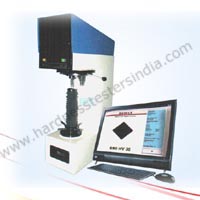

M.M. Engineers is a prominent manufacturer, supplier, and provider of advanced Computerized Hardness Testing Machines in Mumbai, Navi Mumbai, and Thane. Our Computerized Hardness Testing Machines are designed to deliver precise and reliable hardness measurements for a wide range of materials, meeting the highest industry standards. As trusted wholesalers and dealers, we offer cutting-edge testing solutions that provide accurate, automated results with ease of use and enhanced efficiency.
In addition to offering top-of-the-line products, M.M. Engineers provides comprehensive services, including installation, calibration, and maintenance for your Computerized Hardness Testing Machine. We also offer high-quality spare parts to ensure the long-term performance and reliability of your testing equipment. Whether you're a trader, manufacturer, or need testing services in Mumbai, Navi Mumbai, or Thane, M.M. Engineers is your trusted partner for all your hardness testing needs.
